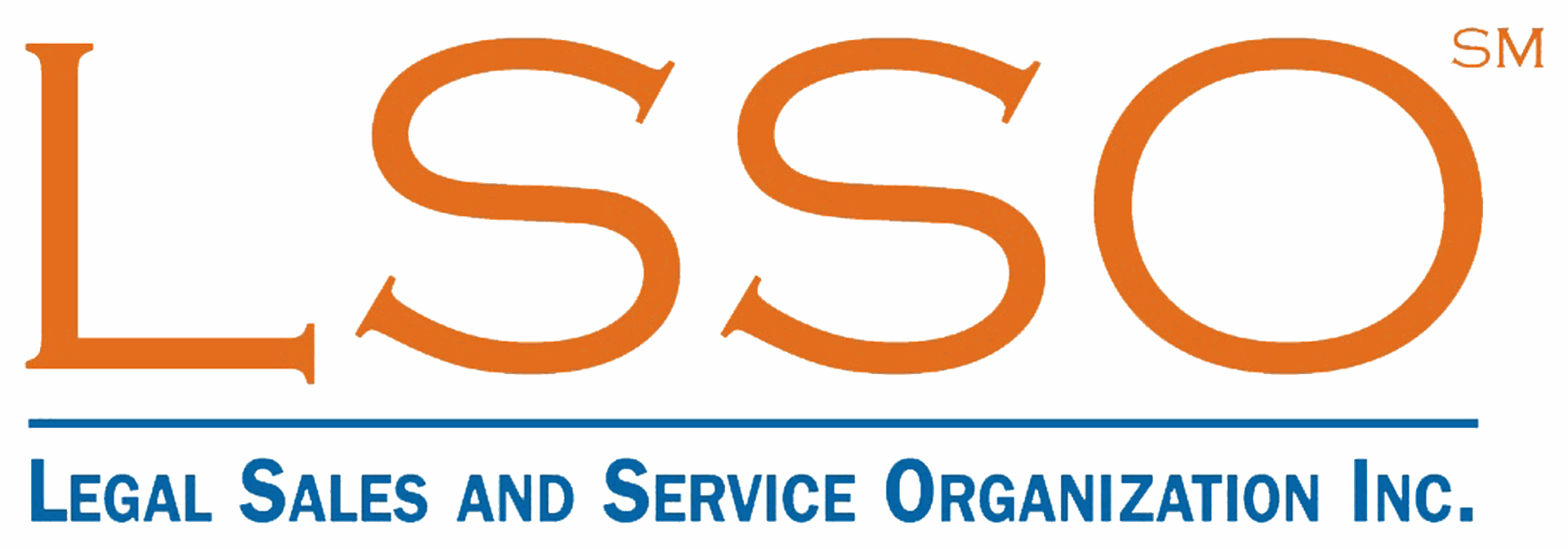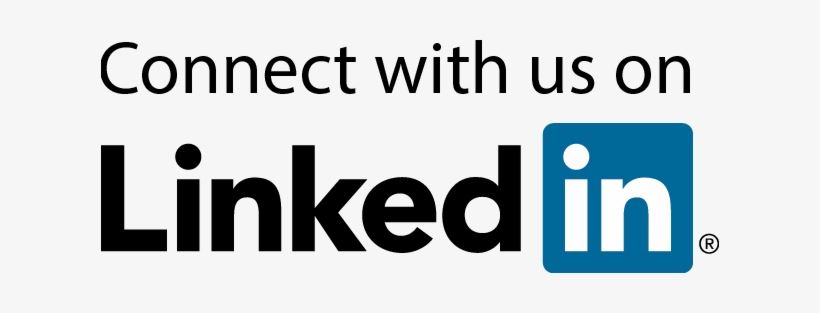By Robert Weiss
Video marketing for law firms is still at an early adopting phase and each firm is different on how they’re approaching video. Wherever you are at, we’ve put together a short list of the Top 5 Questions that Law Firms have about Video Marketing so you can get informed and make a decision about this misunderstood, but highly impactful piece of digital content.
When it comes to getting new case work, video marketing is highly impactful because attorneys are the “products” at law firms and video is the ONLY way to truly showcase a partner’s personality and their expertise.
Why Should Law Firms Consider Video Marketing?
In the last five years we have all become a nation that watches video first before reading (hey, I didn’t make the rules!). And when you think about it, the reason is simple - video is easier to watch and to understand than reading a lengthy text….especially with complex legal topics.
Video production for law firms is about appealing to giving people the most amount of information in the shortest amount of time. If you're writing blogs, sending emails, or getting ready to give a presentation at a conference, those activities are just about communicating business messages. And video marketing for law firms is just about doing the same thing. But because video is more powerful than text and you will realize an uptick in your digital marketing objectives and begin to see more clients.
So let's get into the Top 5 Questions that Law Firms have about Video Marketing. The first one is always,
1) What Makes up the Cost of a Video
There are many ways to produce a video, which is why you will find a wide range of investment options for a legal marketing video. But these are the five main factors that can determine how much you would invest - think Sr Partner bills at a higher rate than an Associate, but might do the same legal work.
- Pre-production Time
- Cameras and equipment
- Time
- Motion graphics and color correction
- Experience of your team
By way of example, here are two different budget allocation levels that you might invest in when hiring a video production company to produce a 2-minute firm overview video.
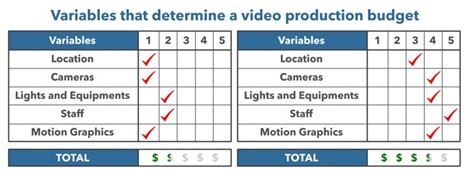
On the left, you only have 1 location. While the one on the right, has 3 locations. So it will be obvious on which video would cost more...the one with 3 locations. As you go down the main aspects of what a video costs, you have different levels of staff experiences, camera quality, types of supporting equipment, and including motion graphics.
When planning for your video marketing strategy, you should be looking to do many types of videos. Thus spending different budget levels for different business objectives. But it is best to start with a budget that is suitable for your firm.
2) How Often Should We Be Doing Video and What are the Use Cases?
Every firm is going to have a different cadence for video marketing. But if your firm has not yet done, or is just started, with video, then you will probably invest on a smaller scale than those firms that have already seen the power of marketing video for their firm.
Even though you might start with one video, you should get to the point of producing monthly content. Most firms have many partners, have many service areas, many offices, and there are many use cases for videos like -
- Thought Leadership videos
- Practice area overview videos
- State of the firm videos
- Internal communications
- Pro bono stories
- Bring industry report data to life with infographic videos
- Bio videos
- Recruiting videos
- Client Testimonials
- Event videos
3) How to Get the Highest ROI From an Investment in Video.
To get the most ROI out of your investment in video implement a Video 1st Video marketing strategy. It starts with a video first and from the video you derive all the ancillary pieces of content that legal marketers need today.
For example, when a partner does a subject matter expert video, you can have that video transcribed and then repurposed into a blog post, social media captions, ad copy, email campaigns and web copy.
Then, as you are in the sales process converting leads into clients, you can use your thought leadership videos before, during or after a meeting to solidify the trust that is so key to winning new client relationships. So once you have videos, you can use them in several different ways, week in and week out, over the next few years.
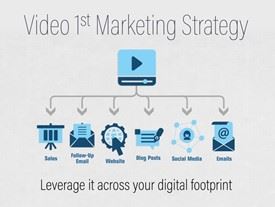
4) To Script or Not to Script?
Your partners are not actors, but they do know what they are talking about. Which leads to the question of “To script or not to script?”
Our answer is - do not script (unless it is for a teleprompter style video).
In order to prepare your partners for your video shoot, have them prepare a high-level outline of what they want to say...just like they would if they were speaking in front of a client. With their outline ready, they will be in a position to speak naturally and professionally just being themselves in front of the camera.
Having an outline can help them be more confident in what they are presenting with natural intonation and presence. In that matter, that’s what a video production company brings to the table. They're excellent at working with people who may feel uneasy in front of the camera before and making them feel comfortable in performing.
5) Should You Do DIY Video or with a Production Company?
Do you need to always use a video production company? Of course you don’t. And you should get to the point of doing video yourself. But, would you suggest that your professional business client use LegalZoom? They could, but would that really help them in the long run?
Each firm is different, and video production companies are highly experienced to assist you attain your business goals, and can help you with the pre-production process up to the final output. So especially if you are new to video production, you might be better to get started by working with one of the talented video production companies near you.
When you start doing more videos you will begin to understand the entire process, you’ll get better at creating videos. When you shoot your Do-it-Yourself content and mix in high quality content from a video production company, that’s when video marketing really kicks in. It’s just a matter of figuring out what goes where.
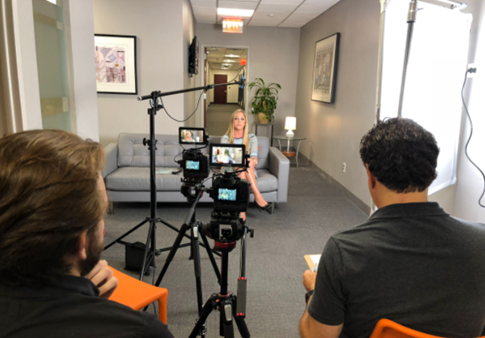
BONUS:
6) How Many Years Does a Video Last?
One of the amazing qualities about video content, like subject matter expert / thought leadership video, practice area marketing videos, recruiting videos and firm overview videos is that they can last for a long period of time.
Even though you will make an investment in video today, you can repurpose and reuse that video for 4-5 years...or more sometimes. The core content in your thought leadership videos, firm overview videos or practice area marketing videos, for example, are going to last a long time and can be used all over again across your sales process and digital footprint.
Have any questions, give us a call or send us an email, our contact information can be found at https://nycCorporateVideoProduction.com
We’ll be seeing you in front of the camera.
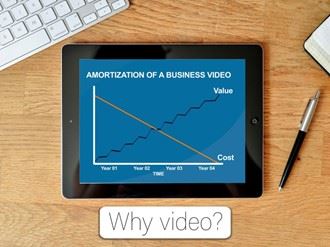

 Robert Weiss is President of MultiVision Digital, one of the top video production companies in New York, that provides the full spectrum of video strategy, video production and video marketing services that businesses need to drive action across the entire buyer's journey. Having produced over 900 business videos since our inception, our holistic approach has allowed clients to increase sales profitability, convert leads at a higher rate, improve SEO rankings, and improve client loyalty. MultiVision Digital’s clients range from solo-entrepreneurs to global Fortune 500 companies across almost every industry. But more importantly, have executed successful business video strategy plans for every business objective. Robert is a graduate of Bryant University, he is a USA Hockey Level 3 coach and has summited Mt Kilmanjaro.
Robert Weiss is President of MultiVision Digital, one of the top video production companies in New York, that provides the full spectrum of video strategy, video production and video marketing services that businesses need to drive action across the entire buyer's journey. Having produced over 900 business videos since our inception, our holistic approach has allowed clients to increase sales profitability, convert leads at a higher rate, improve SEO rankings, and improve client loyalty. MultiVision Digital’s clients range from solo-entrepreneurs to global Fortune 500 companies across almost every industry. But more importantly, have executed successful business video strategy plans for every business objective. Robert is a graduate of Bryant University, he is a USA Hockey Level 3 coach and has summited Mt Kilmanjaro.
